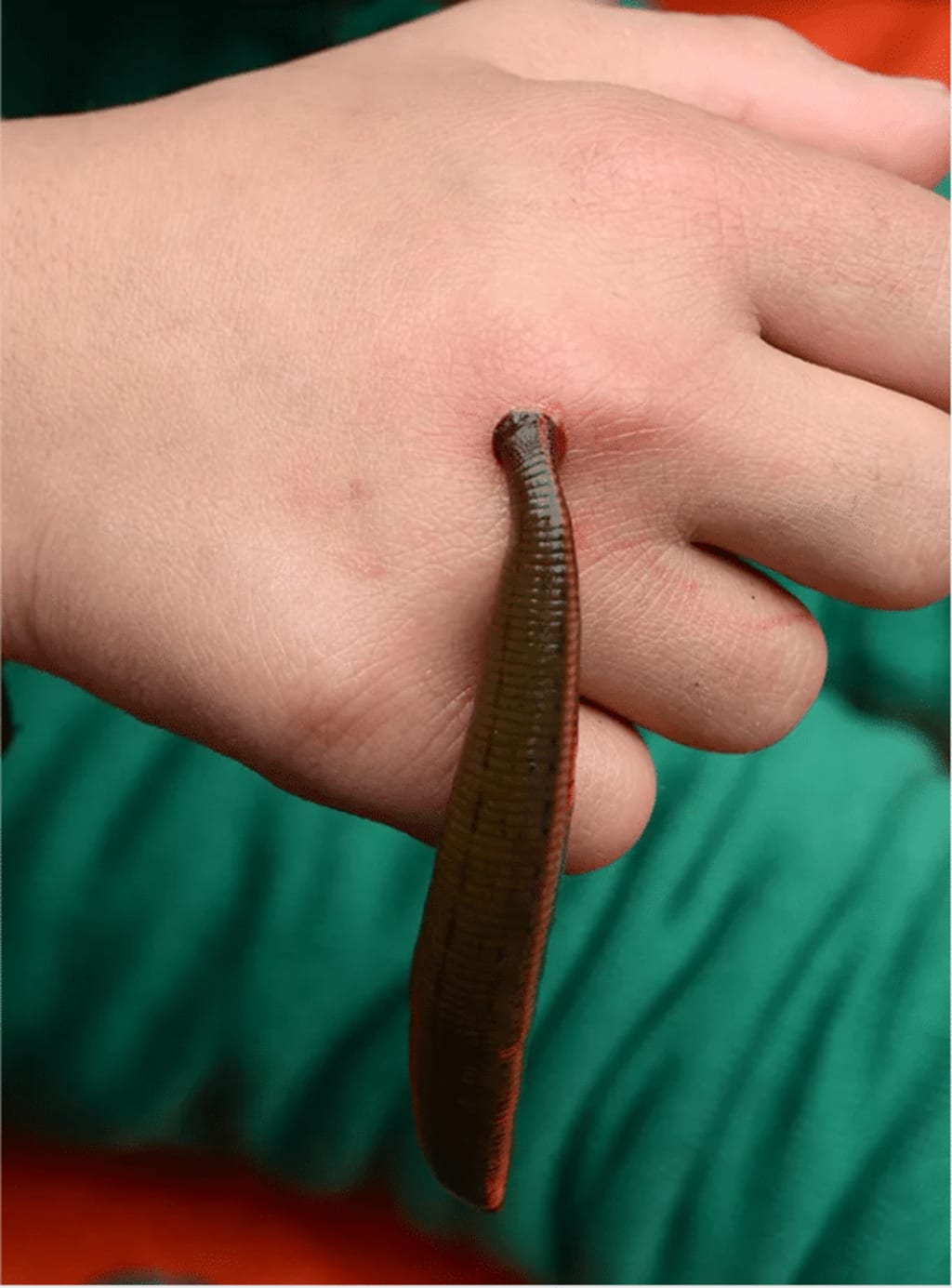Can leeches survive in chickens?
The end of the leech that entered the chicken

Since ancient times, blood-sucking creatures have been terrifying. Leeches are soft, elongated, and a little disgusting when they wriggle. Coupled with the blessings of various folk legends, leeches are definitely what I fear the most. one.
At that time, the most widely circulated and most frightening statement about leeches was that some people believed that leeches would burrow into the human body to suck blood, and then multiply in the body, and eventually people would die because of the blood being sucked dry.
It's a bit of an exaggeration, but it's not unfounded.
In 1895, a man in India went to the doctor because of hemoptysis in his throat. He described the symptoms to the doctor:
"At first, I felt a foreign body in my throat, but I couldn't cough it out. It was very uncomfortable. Sometimes I even felt that the foreign body was alive and moved. After a few days, I even spit out a few mouthfuls of black blood."
After careful inspection, the doctor found a parasite at the lower part of his throat. After pulling it with tweezers, he found that it was a leech. The leech was 7 cm long after it was full.
A 5-year-old boy had a similar experience. He was sent to the hospital because of vomiting blood, and a swollen "bug" was found in his throat. After taking it out, it was found that it was also a leech.
There are still many cases like this. If you study carefully, you will find that in almost all cases of human parasitism, the parasitic parts of leeches are superficial parts of the human body, such as the throat, ear canal and nasal cavity, and do not really enter the human body at all. .
Can leeches survive in humans?
This starts with some properties of leeches.
Leeches are what we often call leeches. When I was a child, there were a lot of them in the paddy fields. If they were not careful, they would stick to people's legs and suck blood greedily. They would fall off automatically until the body became "bloated" after eating.
There's no point in trying to get rid of the leech until it's full. Even if the body of the leech is pulled to a slender state, it will not let go. If you continue to use brute force, although the body of the leech is torn off, its suction cup will also be broken in the body.
The most practical way is to use salt, saliva, urine, and fire. These are all effective ways to be tested by friends around you.
Generally speaking, leeches do not actively enter the human body, they are forced, because they need oxygen to survive, which is a typical type of parasitism on the body surface.
Drinking raw water and eating raw vegetables may cause leeches to be swallowed.
Unlike the folklore, the leech that entered the human body did not end well:
1. Most leeches are not lucky, they enter the stomach directly, there is no oxygen in the stomach, and the stomach acid is acidic. In such an environment, leeches are "a piece of meat" that will be absorbed and digested by the human body;
2. A small number of leeches have strong willpower, and they adsorb themselves in the shallower parts of the body such as the throat and nasal cavity, and survive by relying on the outside air and the blood of the human body.
Such leeches are also very difficult to live. First, the existence of "foreign objects" leeches will cause the body's immune response. If the body becomes infected and inflamed, people will go to the doctor and the leeches will be taken out; You can't relax. Once you are full, it will fall off automatically, and it is very likely to enter the stomach and be digested.
3. Not all leeches enter the human body through the mouth. Some leeches can burrow into the body through the urethra. This situation is more dangerous, because not only must the leeches be killed, but they must also be completely removed. Fortunately, in this case relatively rare.
In general, leeches enter the human body, and in most cases, it is the "dish" of the human body.
If a chicken eats a leech, can the leech pierce the chicken's stomach?
If it is not a human but a chicken that eats it in the stomach, according to the living conditions of the leech in the human body, it is impossible for the leech to penetrate the stomach of the chicken, and it will even be worse than in the human body.
First of all, chickens eat with hard beaks, and people can accidentally swallow leeches whole, but chickens don't.
Generally speaking, when encountering soft food like leeches, chickens will not swallow them whole, but will peck them with their beaks.
Second, chickens do not have teeth, but they have sand in their bodies that can grind their food.
Even if the leech is lucky enough to swallow it alive into the belly of the chicken, it still faces the grinding of the sand in the chicken gizzard and the corrosion of stomach acid.
It can be said that no leech can live in the chicken, let alone make trouble in the chicken's stomach.
at last
Leeches, although disgusting in appearance and blood-sucking, still cannot stop human beings' love for leeches.
Since ancient times, leeches have been used as a traditional Chinese medicine. The leeches are scalded with boiling water and dried in the sun to be used as medicine, which has the effect of promoting blood circulation and removing blood stasis.
Leeches have high nutritional value, and people who are brave will also use them to fry them.
And live leeches, as long as they are applied, can also benefit mankind.
During the Spring and Autumn Period and the Warring States Period, King Hui of Chu accidentally ate live leeches.
The leech entered the body and sucked up the blood accumulated in King Hui of Chu's body. The disease caused by the blood stasis would be cured naturally, and King Hui of Chu spat out the leech again, and his body was completely cured.
Now, the method of using living leech therapy is collectively called: leech living therapy.
Using the properties of leeches to suck blood and prevent blood coagulation, leeches have very successful applications in the replantation of severed limbs and surgical plastic surgery.
About the Creator
sondra mallen
Share a little bit of science every day






Comments
There are no comments for this story
Be the first to respond and start the conversation.